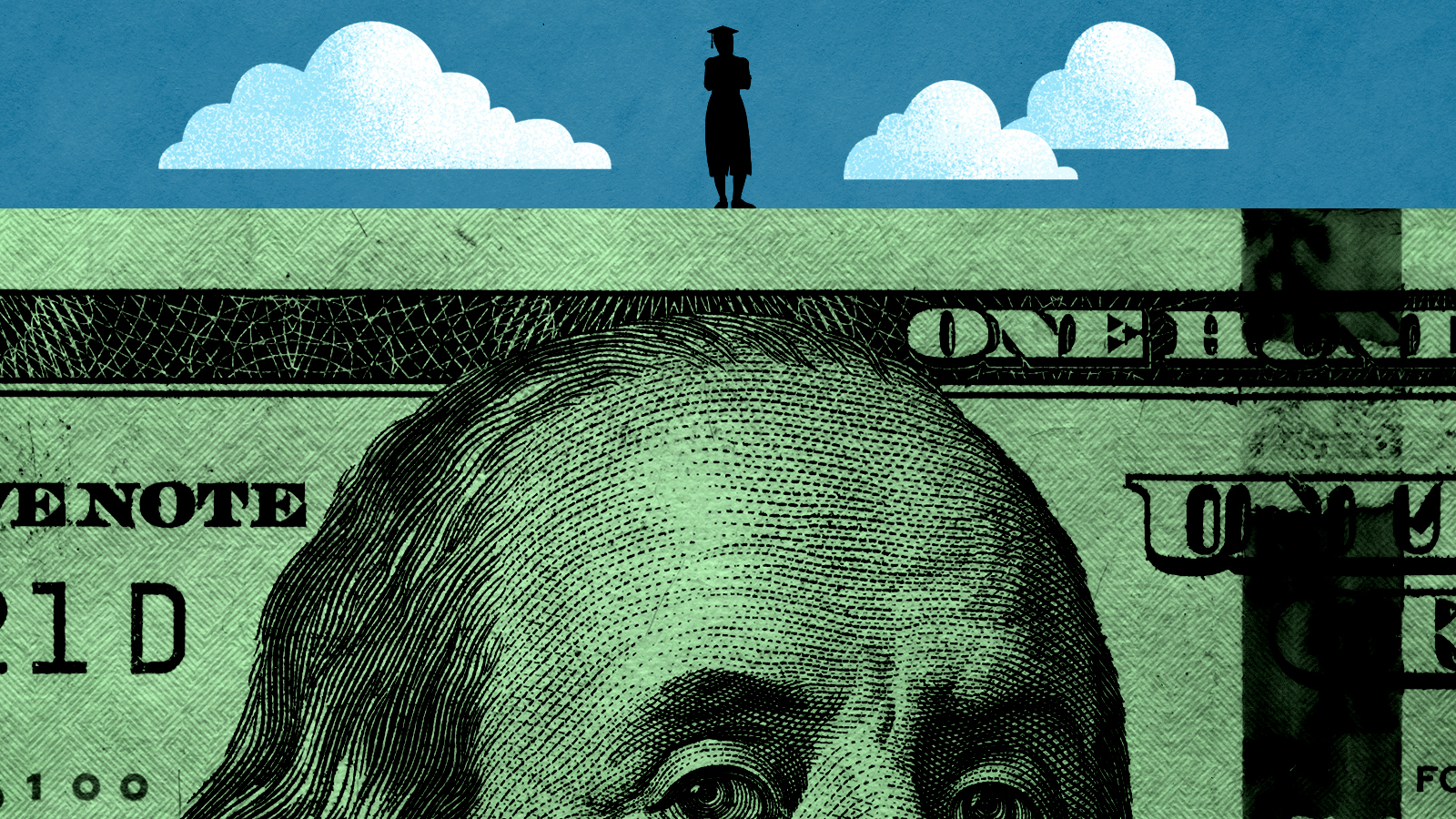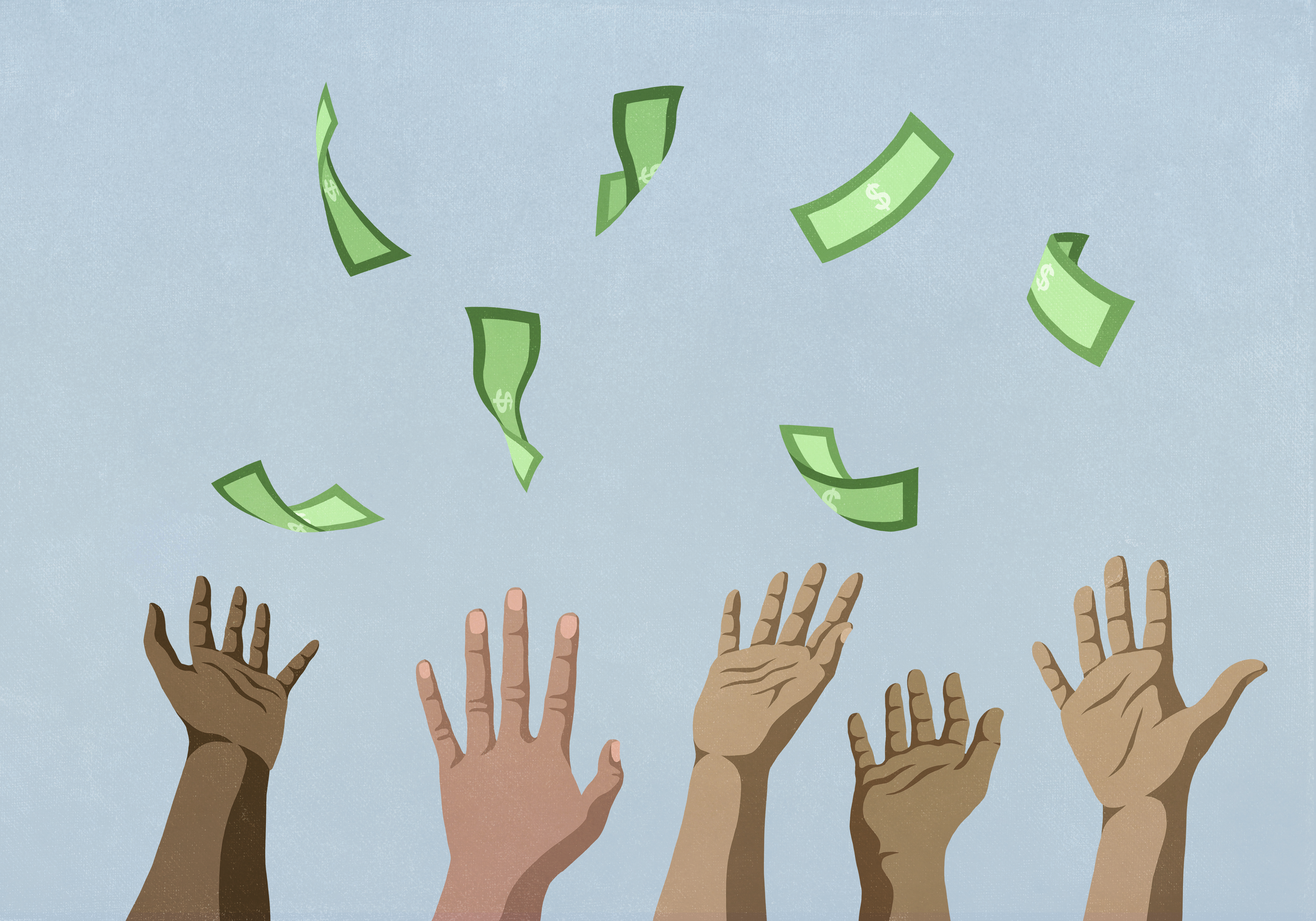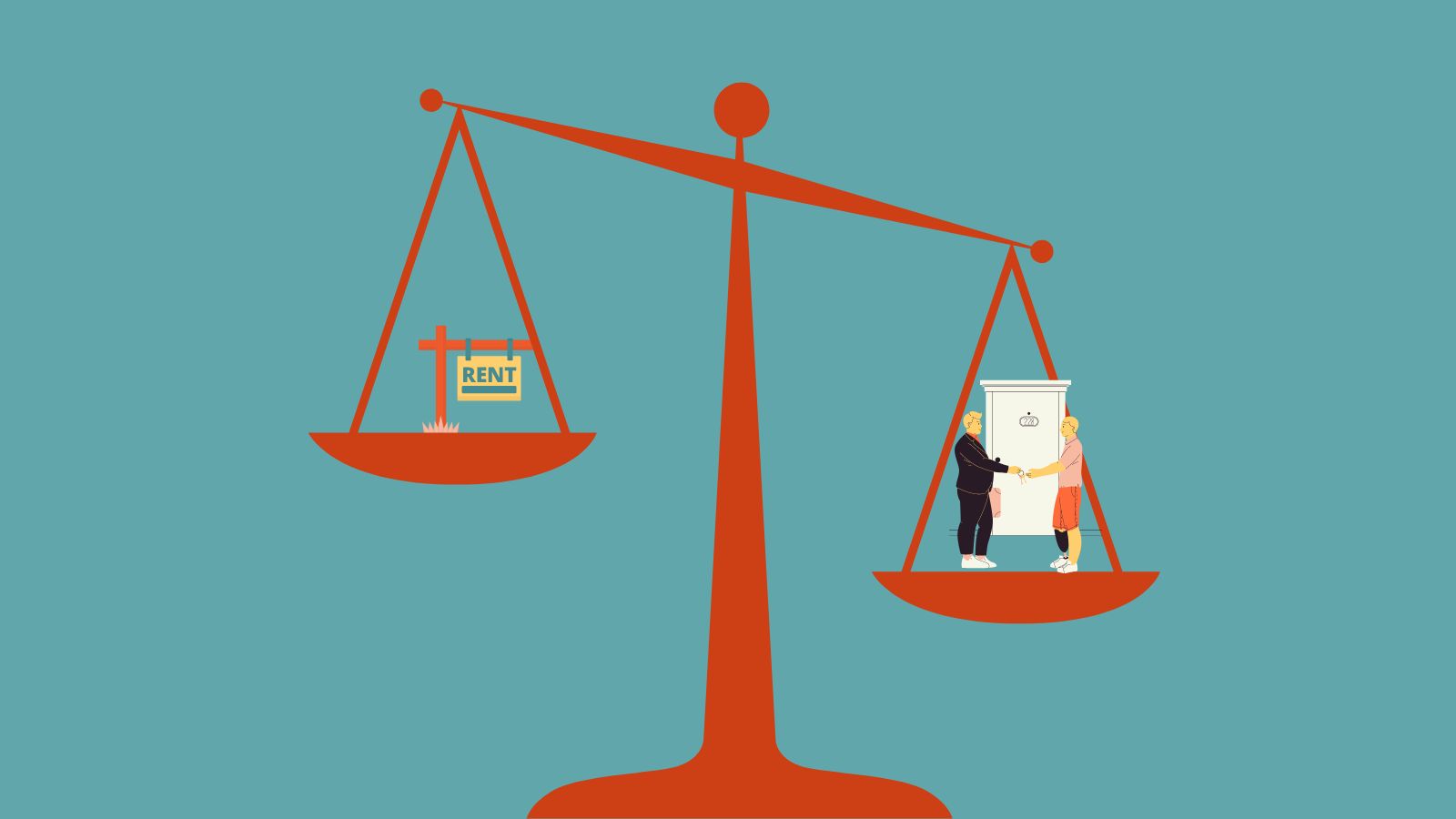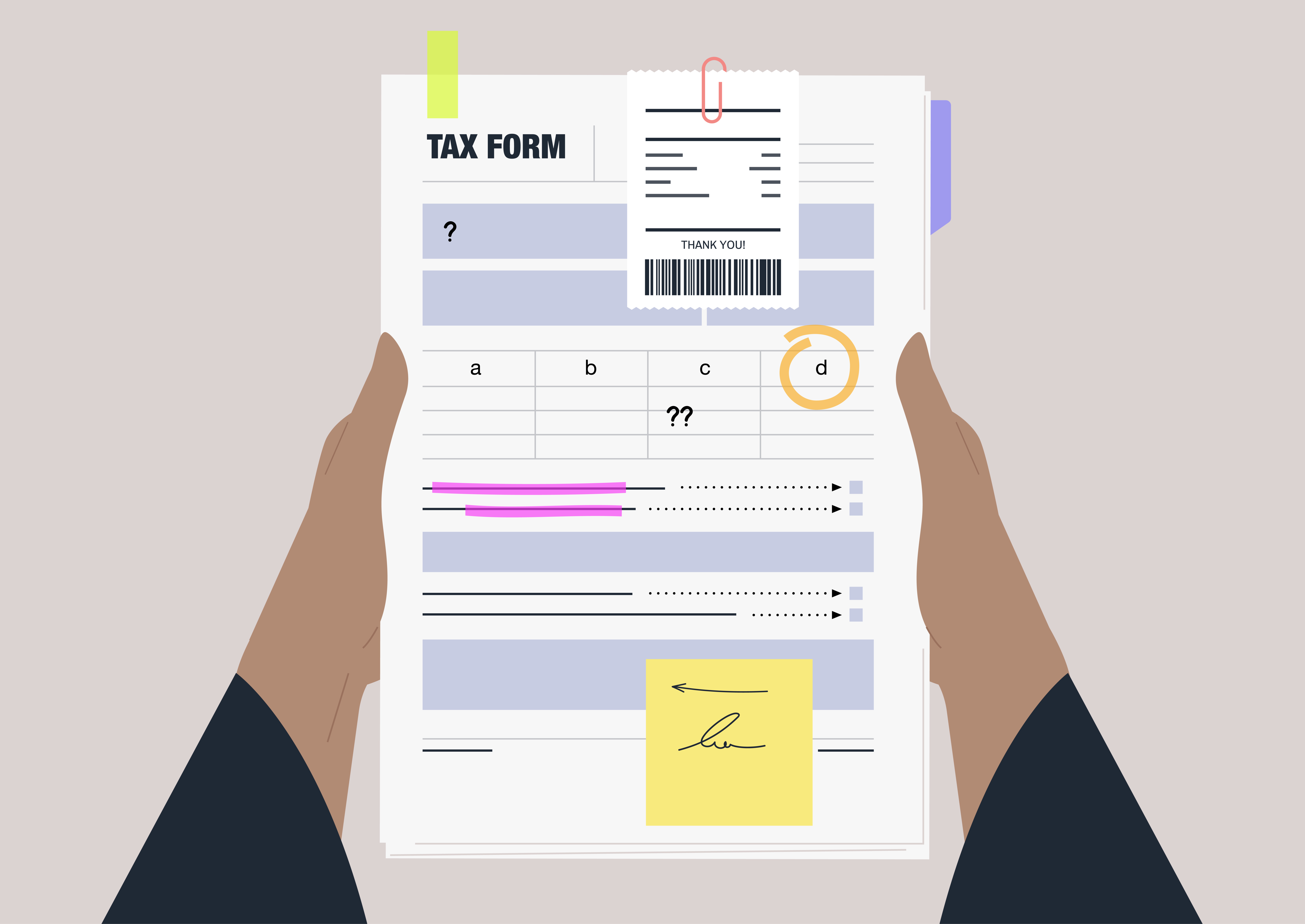Everything you need to know about the new student loan payment proposal
The 'safety net' aims to keep young adults from going into massive debt for the sake of their education


A free daily email with the biggest news stories of the day – and the best features from TheWeek.com
You are now subscribed
Your newsletter sign-up was successful
The Biden administration has released a new student loan repayment plan that is expected to make college "more affordable and manageable than ever before." Here's everything you need to know:
What are the details of the plan?
The Department of Education (DOE) called the new plan a "student loan safety net" that prevents borrowers from being overwhelmed by debt, per The Associated Press. It revises one of the current income-driven payment plans known as REPAYE, where monthly payments are determined by the borrower's income and then the remaining loan is forgiven after 20 years. The Education Department's updated plan would make the process more forgiving, The New York Times explains.
First, undergraduate loan payments would be reduced to 5 percent of discretionary income, compared to 10 percent in the old REPAYE plan. Discretionary income is the amount of money left over after paying expenses. Graduate loan debt would be set at 10 percent of discretionary income, but if you have both, it would be weighted.
The Week
Escape your echo chamber. Get the facts behind the news, plus analysis from multiple perspectives.

Sign up for The Week's Free Newsletters
From our morning news briefing to a weekly Good News Newsletter, get the best of The Week delivered directly to your inbox.
From our morning news briefing to a weekly Good News Newsletter, get the best of The Week delivered directly to your inbox.
Low-income borrowers might also be eligible for $0 monthly payments if they are not making 225 percent of the federal poverty level. "That means a single borrower earning less than $30,500 a year and a borrower in a family of four making less than $62,400 would not be required to make monthly payments on their loans," The Washington Post reports. Additionally, those who took out smaller loans would also have their debt forgiven in 10 years, rather than in 20 years.
The biggest change is that the borrower's loan balance would not increase over time, even if they currently are not making payments.
It is not yet clear when the new plan would be implemented.
What kind of savings would you see?
The most significant savings would go to those with undergraduate debt, since their monthly payments would be reduced. "These proposed regulations will cut monthly payments for undergraduate borrowers in half and create faster pathways to forgiveness, so borrowers can better manage repayment, avoid delinquency and default, and focus on building brighter futures for themselves and their families," said Education Secretary Miguel Cardona.
A free daily email with the biggest news stories of the day – and the best features from TheWeek.com
Also, low-income borrowers would pay an average of "83 percent lower per dollar borrowed over their lifetimes," writes the Times. High-income earners would see a 5 percent decrease in payments. "We are, for the first time, creating a true student-loan safety net in this country," Undersecretary of Education James Kvaal told reporters.
What are the criticisms of the program?
The Office of Federal Student Aid (FSA) has been vocal about the pressure it would face implementing the new plan. The FSA and DOE "must now safeguard priorities ... while also scrambling to find hundreds of millions of dollars to cut from other current and future programs," according to NPR.
This is because Congress' omnibus spending bill did not allocate enough for the FSA to fulfill everything on its agenda. In 2022, the FSA had a budget of $2 billion; in the original 2023 budget proposal, the Biden administration wanted to raise the budget to $2.65 billion. Republicans counteroffered with a 20 percent increase for the FSA, which was lower than what the administration wanted, but still an increase. "There was a proposal put forward to the White House to say, 'Listen, we'll give you an extra couple hundred million dollars here, in order to focus on improvements … for the student loan program,'" a source told NPR. "But that came with a tradeoff." The tradeoff was that none of the funding could go to Biden's loan relief program.
In turn, the Senate version of the bill provided "no new funding for the implementation of the Biden administration's student loan forgiveness plan." Democrats did not want an exception like that specifically noted, and rejected the proposal. Republicans "refused to agree to additional money for FSA without a debt relief exception," explains NPR. As a result, the agency received the same budget as last year, with more agenda items to cover.
Another concern is that the debt relief program will subsidize predatory schools "because borrowers with the lowest earnings — perhaps because they graduated from, or left, poor-performing programs — receive some of the biggest benefits," MarketWatch explains. As Kvaal echoed, "It's time to name names about these programs and have a frank conversation about the root causes of student debt."
Devika Rao has worked as a staff writer at The Week since 2022, covering science, the environment, climate and business. She previously worked as a policy associate for a nonprofit organization advocating for environmental action from a business perspective.
-
 Political cartoons for February 21
Political cartoons for February 21Cartoons Saturday’s political cartoons include consequences, secrets, and more
-
 Crisis in Cuba: a ‘golden opportunity’ for Washington?
Crisis in Cuba: a ‘golden opportunity’ for Washington?Talking Point The Trump administration is applying the pressure, and with Latin America swinging to the right, Havana is becoming more ‘politically isolated’
-
 5 thoroughly redacted cartoons about Pam Bondi protecting predators
5 thoroughly redacted cartoons about Pam Bondi protecting predatorsCartoons Artists take on the real victim, types of protection, and more
-
 A guide to cashing out your retirement accounts
A guide to cashing out your retirement accountsSpeed Read Does order matter? What's the best strategy for taxes?
-
 4 REITs to watch
4 REITs to watchSpeed Read A selection of real estate investment trusts with "exceptional pricing power"
-
 What is 'lifestyle inflation' and how does it limit wealth?
What is 'lifestyle inflation' and how does it limit wealth?Speed Read More money, more problems? Not necessarily.
-
 How to get a mortgage if you're retired
How to get a mortgage if you're retiredSpeed Read If you're considering applying for a mortgage in retirement, here's a look at what to expect, as well as some tips for making the process less painful
-
 How to free yourself from credit card debt
How to free yourself from credit card debtSpeed Read Has your balance gotten out of control? Personal finance experts have some solid tips and tricks to help you get on top of your credit card debt.
-
 Renters' rights, explained
Renters' rights, explainedSpeed Read The Biden administration announced new federal actions to protect tenants as rent prices continue to climb. What rights do renters have already?
-
 A smart guide to ESG investing
A smart guide to ESG investingSpeed Read Some say ESG investing is better for the planet. But is it good for your wallet, too?
-
 7 tax breaks that could save you money
7 tax breaks that could save you moneySpeed Read Brush up on these tax breaks before you file to make sure you're not overpaying
